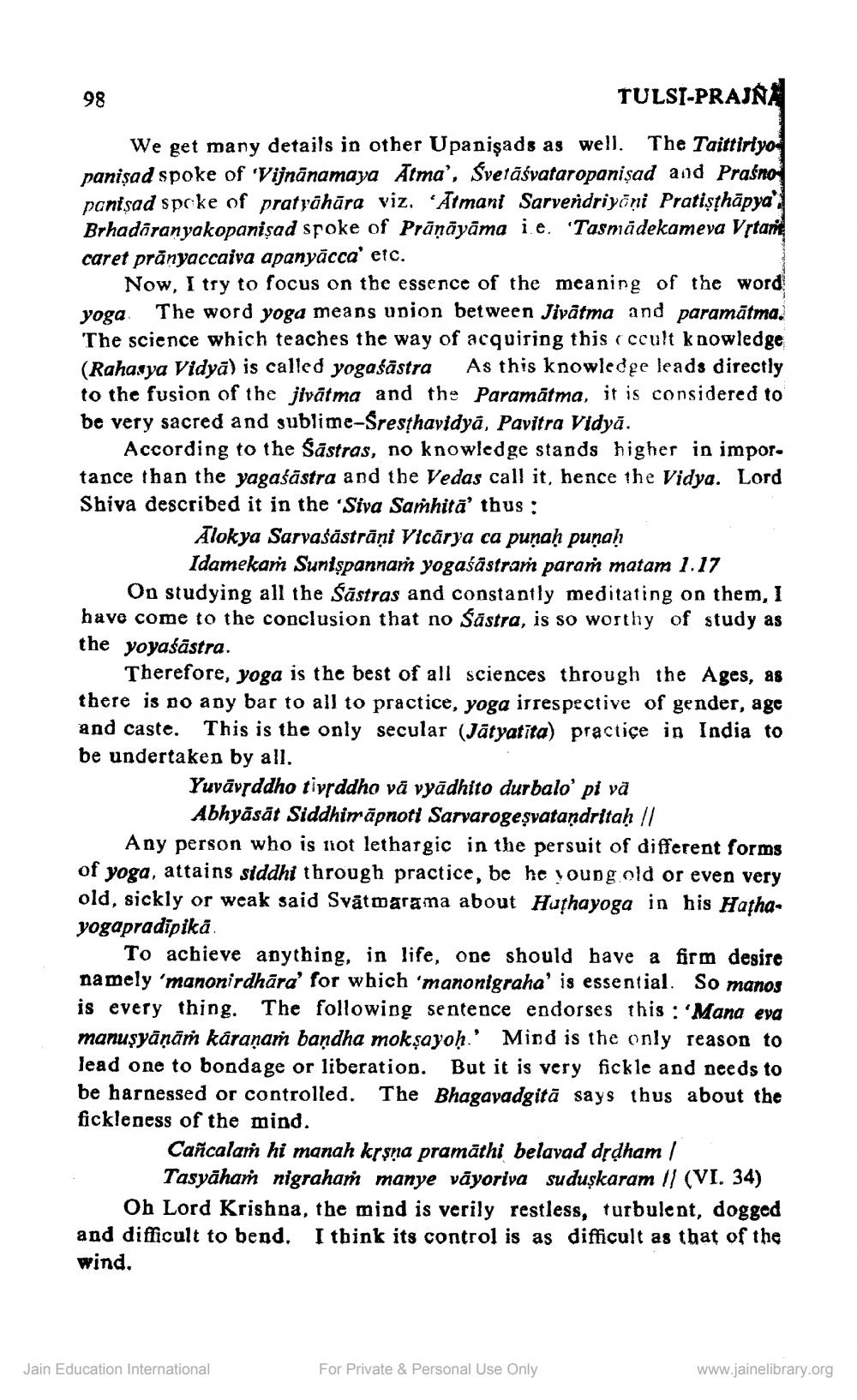________________
98
TULSI-PRAJNE
We get many details in other Upanişads as well. The Taittiriyo panișad spoke of 'Vijnanamaya Atma', Svetāśvataropanişad and Prašno pantsad spoke of pratyāhāra viz. Ātmani Sarvendriyāni Pratisthāpya". Brhadaran yakopani şad spoke of Prānāyāma ie. "Tasmādekameva Vrtant caret prānyaccaiva apanyäcca' etc.
Now, I try to focus on the essence of the meaning of the word yoga The word yoga means union between Jivātma and paramātma. The science which teaches the way of acquiring this (ccult knowledge (Rahasya Vidyā) is called yogaśāstra As this knowledge leads directly to the fusion of the jivātma and the Paramātma, it is considered to be very sacred and sublime-Sresthavidyā, Pavitra Vidyā.
According to the Sāstras, no knowledge stands higher in impor. tance than the yagaśāstra and the Vedas call it, hence the Vidya. Lord Shiva described it in the 'Siva Samhită' thus:
Alokya Sarvasästrāņi Vicārya ca punaḥ punaḥ
Idamekaṁ Sunispannam yogaśāstram paraṁ matam 1.17 On studying all the Šāstras and constantly meditating on them, I have come to the conclusion that no Sastra, is so worthy of study as the yoyaśāstra.
Therefore, yoga is the best of all sciences through the Ages, as there is no any bar to all to practice, yoga isrespective of gender, age and caste. This is the only secular (Jātyatīta) practice in India to be undertaken by all.
Yuvävsddho tiyrddho vă vyādhito durbalo' pi vå
Abhyāsät Siddhimāpnoti Sarvarogeșvatandritaḥ // Any person who is not lethargic in the persuit of different forms of yoga, attains siddhi through practice, be he young old or even very old, sickly or weak said Svåtmarama about Hathayoga in his Hashayogapradipika
To achieve anything, in life, one should have a firm desire namely 'manonirdhāra' for which 'manonigraha' is essential. So manos is every thing. The following sentence endorses this : 'Mana eva manuşyāņāṁ karaṇam baņdha mokşayoh.' Mind is the only reason to lead one to bondage or liberation. But it is very fickle and needs to be harnessed or controlled. The Bhagavadgitā says thus about the fickleness of the mind.
Cañcalam hi manah krşņa pramathi belavad dựdham /
Tasyahań nigraha manye vāyoriva suduşkaram II (VI. 34) Oh Lord Krishna, the mind is verily restless, turbulent, dogged and difficult to bend. I think its control is as difficult as that of the wind.
Jain Education International
For Private & Personal Use Only
www.jainelibrary.org




